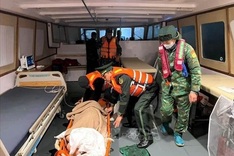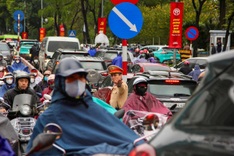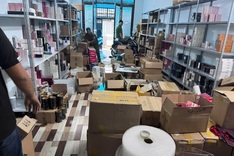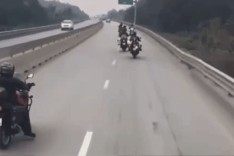Discrimination hinders millions of disabled people in Vietnam from exercising their basic right for a healthy sex life.
 |
| People with disabilities join a community event at Phan Dinh Phung Club in HCM City. |
Society generally considered the disabled to be non-sexual so their sexual needs were ignored, said Khuat Thu Hong, head of the Institute for Social Development Studies (ISDS).
Most policies for the disabled relate to healthcare, education, job training and employment. Few ever refer to marriage and sex.
Hong said there was a general prejudice that sex was something not meant for the blind, crippled or other handicapped people.
This went so far as to state that disabled women should not get married because "they were unable to fulfil the roles of wife and mother".
A study by the ISDS in Thai Binh, Da Nang, Quang Nam and Dong Nai provinces revealed that people in more than 80 percent of 8,000 households said disabled people should not get married.
The households have a total of 5,500 members suffering from hearing, visual and mental problems resulting from exposure to Agent Orange.
From 32 to 90 percent of households said disabled women should avoid having children.
About 47 percent of disabled respondents aged 18 and over said they would not marry.
Chairman of the Vietnam Blind People\'s Association Dao Soat said many blind couples were blocked from getting married by their families.
This was because of the prejudice that it was hard enough for the blind to take care of themselves, so it was much harder to take care of another.
Some added that it would be an added burden if the two had a baby, especially a blind one.
Soat said that many times he had to ask other blind people for sex-related information as other people were afraid to speak to them on the subject.
Hong from ISDS said disabled people were usually kept in the dark about sexuality.
Many simply understood that sexuality meant to produce a baby or to have sexual intercourse, he said, adding that, they even did not dare to think of sexuality.
In another study on reproductive and sexuality rights for young, disabled Vietnamese last October by the Ha Noi-based Centre for Creative Initiatives in Health and Population, discrimination and self-discrimination were said to be the major barrier for disabled people thinking of love and marriage.
Doctor Hoang Tu Anh, a centre founder, said that long-lasting prejudices about love, marriage, sexuality and child-bearing made the disabled keep their feelings to themselves or refuse their partners\' love because they thought their love could not lead to marriage - and that a marriage could not work if there was no child.
The study also revealed that all disabled respondents said they had accessed information for normal people because there was none specific for them. Medical services were of little help as healthcare staff did not have the skills to advise the disabled.
Dr Anh said that it was necessary to change the way people felt about those who were handicapped.
"Let\'s view disabilities as a diversification of the human body instead of an abnormality," she said.
Anh said reproductive health and sexuality needed to be included in training courses for health officers and teachers.
Nguyen Thao Van, 25, who has impaired movement, said most people with disabilities wanted a family life with a partner and children. The parents of disabled adults also hesitate to allow marriage to another disabled person and are confused about a marriage to those who are not disabled.
Van said that she thought about getting married one day, but was worried about having a child.
She said her knowledge about reproductive health and marriage was mostly from the Internet or from a few discussions among groups of disabled friends.
"Many of my friends have hardly any understanding about this topic, so they have lots of questions, including if they can have baby and if it risks being handicapped," Van said.




















